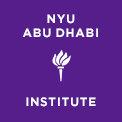Thieves’ Tricks: An Excerpt from The Book of Charlatans
 The Book of Charlatans is a guide to trickery and scams as practiced in the thirteenth century in the cities of the Middle East, especially in Syria and Egypt. In this excerpt, al-Jawbarī explains some of the tricks thieves used to enter houses.
The Book of Charlatans is a guide to trickery and scams as practiced in the thirteenth century in the cities of the Middle East, especially in Syria and Egypt. In this excerpt, al-Jawbarī explains some of the tricks thieves used to enter houses.
Exposé of the Tricks of the Thieves Who Enter Houses by Making Holes in Walls and Committing Murder
This tribe of charlatans believes that living off ill-gotten gains and taking human life—which God, Mighty and Glorious, has declared sacrosanct—are permitted.
Exposé: If they enter a place and its owner hears them and opens his mouth, they kill him and that’s the end of it. They will take property and life alike and not stay their hands from anyone who may fall into their clutches.
Section One of the Exposé of Their Tricks
Exposé: Those who practice this craft have need of a tool kit. This consists in part of tools for making holes in walls, such as a crowbar, an iron spike, a metal plate, a lock breaker, and an iron hand with iron fingers. A ladder, a bag of sand, and a small turtle are also essential. (more…)
The Eight Limbs of Yoga: An Excerpt from The Yoga Sutras of Patañjali
The Yoga Sutras of Patañjali is the foundational text of yoga philosophy to this day and is still used by millions of yoga practitioners and students worldwide. Written in a question-and-answer format, The Yoga Sutras of Patañjali deals with the theory and practice of yoga and the psychological question of the liberation of the soul from attachments. The book published by the Library of Arabic Literature is a new edition and translation into English of the Arabic translation and commentary on this text by the brilliant eleventh-century polymath al-Bīrūnī. This excerpt from the text explains the eight limbs (also known as ashtanga) of yoga.
 Question: What are these limbs and how many are there?
Question: What are these limbs and how many are there?
Answer: They are eight in number. The foremost is, generally speaking, abstaining from evil. More specifically, it is not harming any living thing, and refraining from lying, stealing, and fornication, as well as avoiding any association with this world. All these must be relinquished unconditionally, without exceptions such as specifying a time and a place. It is not enough to avoid committing them; one must also not command others to do so or be pleased with their perpetrators. Although there are many types of evil depending on their scale, form, and the quality of their motives, they all arise from greed, anger, or nescience. (more…)
Why Did Humanity So Love This World?: A New Book in the LAL Young Readers Series
 We are pleased to announce the publication of Lima ishtadda ʿishq al-insān li-hadhā al-ʿālam? (Why Did Humanity So Love This World?), which is the second book in the LAL Young Readers series. The book features excerpts from The Philosopher Responds by Abū Ḥayyān al-Tawḥīdī and Abū ʿAlī Miskawayh, specially selected with a secondary-school audience in mind. The book is available for download as a free PDF worldwide, and copies will also be printed for distribution in the UAE.
We are pleased to announce the publication of Lima ishtadda ʿishq al-insān li-hadhā al-ʿālam? (Why Did Humanity So Love This World?), which is the second book in the LAL Young Readers series. The book features excerpts from The Philosopher Responds by Abū Ḥayyān al-Tawḥīdī and Abū ʿAlī Miskawayh, specially selected with a secondary-school audience in mind. The book is available for download as a free PDF worldwide, and copies will also be printed for distribution in the UAE.
 Series editors Bilal Orfali and Enass Khansa write, “Our own desire to present selections from classical texts flows from two sources: first, from a desire to share the worlds that we passionately love in our work as academics, and second, from a deep respect for the Arabic literary heritage, a heritage we would like to remain within the purview of contemporary cultural consciousness and a part of our intellectual identity.”
Series editors Bilal Orfali and Enass Khansa write, “Our own desire to present selections from classical texts flows from two sources: first, from a desire to share the worlds that we passionately love in our work as academics, and second, from a deep respect for the Arabic literary heritage, a heritage we would like to remain within the purview of contemporary cultural consciousness and a part of our intellectual identity.”
The Young Readers series launched in November 2019 with the publication of Ḥiyākat al-kalām, featuring selections from Deliverance Follows Adversity by al-Tanūkhī. Copies of the book were distributed to students and faculty at several universities in the Middle East and the US, as well as to a Moroccan NGO, and copies will also be distributed to forty schools in the UAE at no cost. For an audio version of some of the stories in Ḥiyākat al-kalām, told by a professional storyteller, please visit LAL’s SoundCloud channel.
Introducing LAL’s New Editorial Board
We are pl eased to announce a new editorial board as the Library of Arabic Literature enters its second decade. Six new members join the board this month:
eased to announce a new editorial board as the Library of Arabic Literature enters its second decade. Six new members join the board this month:
- Huda Fakhreddine is Associate Professor of Arabic Literature at the University of Pennsylvania. She is the author of Metapoesis in the Arabic Tradition, andher translations of modern Arabic poems have appeared in Banipal, World Literature Today, Nimrod, ArabLit Quarterly and Middle Eastern Literatures.
- Lara Harb is Assistant Professor of Near Eastern Studies at Princeton University. She is the author of Arabic Poetics: Aesthetic Experience in Classical Arabic Literature.
- Maya Kesrouany is Assistant Professor of Literature and Middle Eastern Studies at NYU Abu Dhabi. She is the author of Prophetic Translation: The Making of Modern Egyptian Literature.
- Enass Khansa is Assistant Professor in the Department of Arabic and Near Eastern Languages at the American University of Beirut. In her research, she introduces readership as a framework for examining Andalusī/Iberian medieval culture, with a focus on the interplay between adab and material culture; the caliphate and the arts; and the intercultural exchange between the Islamic world and Europe.
- Bilal Orfali is Professor and Sheikh Zayed Chair of Arabic and Islamic Studies at the American University of Beirut. He is the author and editor of more than twenty books on Arabic Studies, including The Anthologist’s Artand The Book of Noble Character.
- Mohammed Rustom is Associate Professor of Islamic Studies at Carleton University. He is the author of the forthcoming Inrushes of the Heart: The Mystical Theology of ʿAyn al-Quḍāt.
Impostures is “astounding”: Reviews in the Wall Street Journal, Mada Masr, and more
 Sam Sacks writes in the Wall Street Journal that Impostures is an “astounding new adaptation of the Maqāmāt of al-Harīrī. . . . Impostures shows off English in the same flattering light, demonstrating its dynamism, its endurance, its mutability and its glorious, weedy wildness.” Read the full WSJ review of Impostures here.
Sam Sacks writes in the Wall Street Journal that Impostures is an “astounding new adaptation of the Maqāmāt of al-Harīrī. . . . Impostures shows off English in the same flattering light, demonstrating its dynamism, its endurance, its mutability and its glorious, weedy wildness.” Read the full WSJ review of Impostures here.
Meanwhile at Mada Masr, Matthew Chovanec writes about surveillance, wordplay, and Impostures, which he deems “an important translation of a criminally neglected work of world literature, and an impressive literary work in its own right.” Read the full review here.
Impostures also received mention on the blogs Language Hat (“IMPOSTURES.“) and Language Log (“Impressive Arabic translational improvisations and impostures“). Finally, translator Michael Cooperson was recently interviewed on BYU Radio’s “Top of Mind with Julie Rose.” Listen to find out how and why he “Englished” this popular work of Arabic literature into cowboy language, business jargon, teenage slang, and more. For more interviews with Michael Cooperson and press coverage of Impostures, see these previous posts on our blog.
Impostures on the Seattle Town Hall and Bulaq Podcasts
 This week, translator Michael Cooperson appears on the Seattle Town Hall’s “In the Moment” podcast to discuss his new book, Impostures, in conversation with poet Shin Yu Pai. Impostures is a new translation of the Maqāmāt of al-Ḥarīrī, with fifty rogue’s tales translated fifty ways. Listen to the podcast here (41 minutes).
This week, translator Michael Cooperson appears on the Seattle Town Hall’s “In the Moment” podcast to discuss his new book, Impostures, in conversation with poet Shin Yu Pai. Impostures is a new translation of the Maqāmāt of al-Ḥarīrī, with fifty rogue’s tales translated fifty ways. Listen to the podcast here (41 minutes).
 Impostures also gets a mention in the latest episode of the Bulaq podcast, “Locked-In Lit”: host M. Lynx Qualey mentions it as one of the books she is reading in quarantine and reads a passage from Imposture 14, “Scot Free,” which is written in Scots-inflected English in the style of Robert Burns and James Hogg. Listen to the episode here.
Impostures also gets a mention in the latest episode of the Bulaq podcast, “Locked-In Lit”: host M. Lynx Qualey mentions it as one of the books she is reading in quarantine and reads a passage from Imposture 14, “Scot Free,” which is written in Scots-inflected English in the style of Robert Burns and James Hogg. Listen to the episode here.
Impostures on the Groks Science Podcast

 This week Michael Cooperson appeared on the Groks Science Podcast to discuss Impostures, his new translation of the Maqāmāt of al-Ḥarīrī. He explains what makes the original Maqāmāt so distinctive in Arabic and talks about his unique approach to translating the work, as well as what his favorite Impostures are. Click here to listen to the interview (10 minutes long, beginning at the 1:20 mark).
This week Michael Cooperson appeared on the Groks Science Podcast to discuss Impostures, his new translation of the Maqāmāt of al-Ḥarīrī. He explains what makes the original Maqāmāt so distinctive in Arabic and talks about his unique approach to translating the work, as well as what his favorite Impostures are. Click here to listen to the interview (10 minutes long, beginning at the 1:20 mark).
Saints, Goats, and Genealogy: The First Volume of al-Yūsī’s Discourses
 The peripatetic al-Ḥasan al-Yūsī was in his fifties, and arguably the most influential and well-known Moroccan intellectual of his generation, when he found himself sent by Moulay Ismāʿīl to live near the ruins of the Dilāʾ Sufi lodge. It was in this moment, when he was under quasi-house-arrest by Morocco’s second Alawite ruler, that the scholar set down The Discourses, the first volume of which has now been edited and translated to English as a “labor of love” by Justin Stearns, Associate Professor in Arab Crossroads Studies at NYU Abu Dhabi.
The peripatetic al-Ḥasan al-Yūsī was in his fifties, and arguably the most influential and well-known Moroccan intellectual of his generation, when he found himself sent by Moulay Ismāʿīl to live near the ruins of the Dilāʾ Sufi lodge. It was in this moment, when he was under quasi-house-arrest by Morocco’s second Alawite ruler, that the scholar set down The Discourses, the first volume of which has now been edited and translated to English as a “labor of love” by Justin Stearns, Associate Professor in Arab Crossroads Studies at NYU Abu Dhabi.
 Although al-Yūsī is remembered foremost as a logician and a saint, The Discourses presents other sides to the seventeenth-century Sufi intellectual, offering up his culinary and digestive opinions, his thoughts on composing poetry, a number of amusing anecdotes, and tips for parents who are dealing with late walkers.
Although al-Yūsī is remembered foremost as a logician and a saint, The Discourses presents other sides to the seventeenth-century Sufi intellectual, offering up his culinary and digestive opinions, his thoughts on composing poetry, a number of amusing anecdotes, and tips for parents who are dealing with late walkers.
This wide-ranging, digressive seventeenth-century account is largely inward-looking; it’s almost entirely uninterested in Europe or in al-Yūsī’s contemporaries in Cairo or Baghdad. And yet it also fluidly weaves history from the seventh through tenth centuries of the Arab East with the Morocco of his times.
In this second of a two-part discussion with M. Lynx Qualey, editor of ArabLit, Stearns answers a few questions about his own long journey with al-Yūsī, including his sometimes-contradictory takes on the topics of genealogy and women, belonging to the Amazigh community, the trustworthiness of saints, and…lice collars. (more…)
Al-Yūsī’s Discourses: Situating a Sufi Scholar in a Vivid Seventeenth-Century Morocco
 The peripatetic al-Ḥasan al-Yūsī was in his fifties, and arguably the most influential and well-known Moroccan intellectual of his generation, when he found himself sent by Moulay Ismāʿīl to live near the ruins of the Dilāʾ Sufi lodge. It was in this moment, when he was under quasi–house arrest by Morocco’s second Alawite ruler, that the scholar set down The Discourses, the first volume of which has now been edited and translated to English as a “labor of love” by Justin Stearns, Associate Professor in Arab Crossroads Studies at NYU Abu Dhabi.
The peripatetic al-Ḥasan al-Yūsī was in his fifties, and arguably the most influential and well-known Moroccan intellectual of his generation, when he found himself sent by Moulay Ismāʿīl to live near the ruins of the Dilāʾ Sufi lodge. It was in this moment, when he was under quasi–house arrest by Morocco’s second Alawite ruler, that the scholar set down The Discourses, the first volume of which has now been edited and translated to English as a “labor of love” by Justin Stearns, Associate Professor in Arab Crossroads Studies at NYU Abu Dhabi.
Although al-Yūsī is remembered foremost as a logician and a saint, The Discourses presents other sides to the seventeenth-century Sufi intellectual, offering up his culinary and digestive opinions, his thoughts on composing poetry, a number of amusing anecdotes, and tips for parents who are dealing with late walkers.
This wide-ranging, digressive seventeenth-century account is largely inward-looking; it’s almost entirely uninterested in Europe or in al-Yūsī’s contemporaries in Cairo or Baghdad. And yet it also fluidly weaves history from the seventh through tenth centuries of the Arab East with the Morocco of his times.
In this first of a two-part discussion with M. Lynx Qualey, editor of ArabLit, Stearns answers a few questions about his own long journey with al-Yūsī, including how he met al-Yūsī, how he situates this work, and why he thought, “If there was ever a book I’d run into that should be translated, this was probably it.” (more…)
Chicken in Blackberry Sauce: A Recipe from Scents and Flavors

The thirteenth-century Syrian cookbook Scents and Flavors is out in paperback this month with a new foreword by Claudia Roden, author of A Book of Middle Eastern Food.
In this video, translator and culinary expert Charles Perry shows us how to make chicken with blackberry sauce. Check out the video and written recipe below! Consider pairing this dish with another recipe from Scents and Flavors, like lemon-pistachio stuffing or carrots with mint and coriander.
If you try any of the recipes from Scents and Flavors, we’d love to hear about it on Twitter and Facebook.

